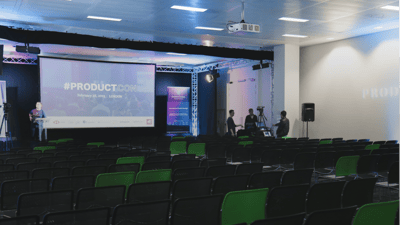This episode was hosted by Adway's own Sara Dalsfelt, Senior Advisor in Digital Talent Acquisition. Joining her is Sofia Palmelius Kolga: Head of Sales & Customer Success at Alva Labs.
Sofia shares her expertise on understanding and eliminating candidate bias, shifting away from sheer credentialism in Talent Acquistion, and transitioning from a “must-have-achieved” to a “must-know-how-to-achieve” mentality by measuring potential.
Summary from the Live
Background Check
- Alva Labs is a three-year-old startup founded by entrepreneurs and headquartered in Stockholm, Sweden. They’re on a mission to make hiring better for everyone by bridging the gap between hiring process theories and actual practices with automation, science and superior usability for recruiters and candidates. Their hiring tool is fast enough to test everyone but offers results that predict performance. It cuts repetition and inefficiencies out of the hiring process and taps into the power of data to save valuable time.
- Adway has a passion for technology, digital marketing and of course, the future of talent acquisition. The vision of Adway is to be the leading HR-tech provider for enterprises around the globe. We supply smart, innovative and cutting-edge solutions to help our clients attract more and better talents – fully automated! Adway’s core belief is that companies thrive when the right people get together. Therefore, the most important thing is not to attract great talents, but the right talents - and that is exactly what we will help you achieve.
Candidate Bias by the Numbers
Looking Past Credentials to Talent Relevancy
- The most common prerequisites demanded by hiring personnel are LinkedIn pages, cover letters and a university degree or certification. We use them to evaluate an entire human being. What if we could look past resumes and see the real potential of the candidate? Or confront our biases and interview people objectively instead of trying to fit them into a non-evidence-based box? Then we could pinpoint relevant talent faster and focus our attention directly on them!
Mentality Shift: Must-Have-Achieved Vs. Must-Know-How-to-Achieve
-
Success Story: One of Alva Lab’s clients automized their assessment process and it led to a 50-year-old man with a non-Swedish background getting through for an interview. If left to the typically biased hiring processes, this man would never have been brought into chat. Now, the client wishes they could clone him and find other talent just like him!
-
We all have diverse skills, so a shift from “must-have-achieved” to “must-know how to achieve” is the best way to embrace non-bias, leave the judgment out of the hiring process, and stop blindly categorizing candidates.
Selection Process Strategies That Spur Long Term TA Success
- Having a set strategy is vital for long term screening success. You can’t control how every single interview is conducted; therefore, we advise to:
- Set up a well-defined process.
-
Decide/ qualify candidate evaluation based on the right criteria.
-
Measure potential early.
-
Let TA set the framework so the hiring manager can run with the appropriate candidates at once.
- Determine” need-to-have” versus” nice-to-have” parameters. Only keep the criteria you really need so you can open your candidate pool.
Taking Action Early in the Selection Process
We must leave out rigid requirements and take action early if we’re going to fully explore the world of great talents. It’s crucial to be hands-off as soon as possible.
Streamlining the Recruitment Process With Data
Defining Failure
- Employees who leave the company too quickly.
- Hiring the wrong talent.
Questions from the Audience
Elin Amrén, Talent Acquisition Partner @ Spotify
How does your TA department ensure their decisions are justified after their interview? How do you create your rubrics? Who decides who should be a part of the interview panel**?
- 83% of all hiring decisions are made by hiring managers, so we need to ensure TA and hiring managers are aligned.
- Maintain structure in the interview with clear headlines and core competencies.
- Determine what exactly should be assessed in the interview process and, once you have a smaller candidate pool, you can decide based on gut feeling.
Sofia Klingberg, Inclusion & Diversity Manager @ AFRY
How can we get to know our biases so that we can learn from them? Can we “become friends with them” and “state the unconscious obvious” so that we all can become better people?
- Science says that to fully understand someone of another race you need to have an intimate relation with that person. The same applies to recruitment— we shouldn’t learn to be buddies with our biases, we should build context around them instead.
Maciej Wolski, Country Manager @ Adway Poland
How can automation and digitalization help us avoid bias? Is it fool-proof?
- No it’s not! Whatever you do in recruitment, you tend to fail at in the long run if there aren’t clear methods. We can be 10X fairer and more accurate, but the fail rate will be lower without metrics. We can’t be afraid to measure – use the data to actually analyze!








